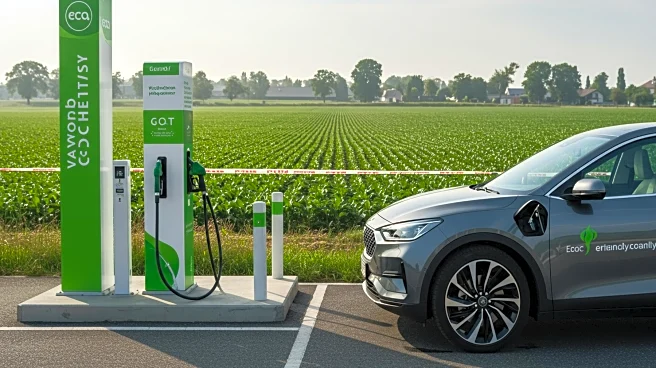What's Happening?
India has achieved its goal of blending 20% ethanol with petrol, known as E20, ahead of schedule, aiming to reduce carbon emissions and oil imports. While this initiative has saved billions in foreign exchange and cut significant carbon emissions, it has raised concerns among vehicle owners and food policy experts. The corrosive nature of ethanol and its lower energy density compared to petrol have led to worries about reduced fuel efficiency and potential damage to vehicle materials. Additionally, the expansion of ethanol use may divert farm produce from food to fuel production, impacting food security.
Why It's Important?
India's biofuel initiative is a significant step towards reducing carbon emissions and dependency on oil imports, aligning with global efforts to combat climate change. However, the concerns raised by vehicle owners and food policy experts highlight the need for careful consideration of the broader implications. The potential impact on vehicle efficiency and food security could affect consumer confidence and economic stability. Addressing these concerns is crucial to ensure the success of the biofuel initiative without compromising vehicle performance or food availability.
What's Next?
The Indian government and vehicle manufacturers are exploring solutions to mitigate the impact of E20 on vehicles, such as offering E20 material kits and fuel cleaners. The government may need to consider policy adjustments, such as tax benefits for E20-compliant vehicles and pricing strategies for ethanol-blended fuel. Ongoing dialogue between stakeholders, including vehicle owners, manufacturers, and policymakers, will be essential to address concerns and optimize the benefits of the biofuel initiative.









